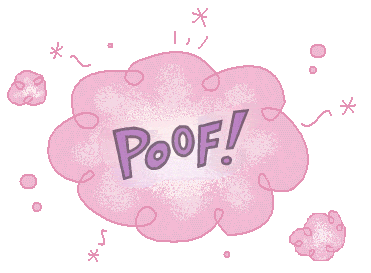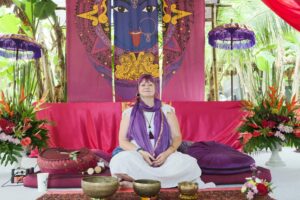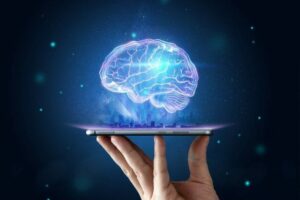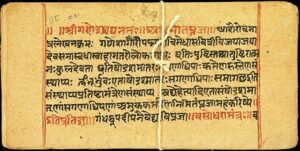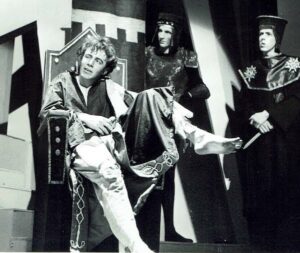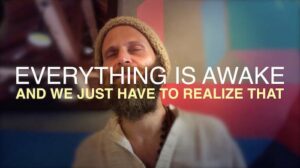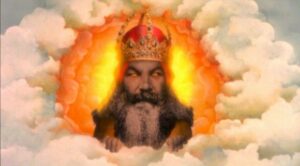Philosophers have been asking for centuries: “Who am I?” The Buddha’s answer is simple, rational, and powerful: you don’t exist.
You don’t exist.
Philosophers have been asking for centuries: “Who am I?”
Theologians have been asking: “What happens to ‘me’ after I die?”
Psychologists have been asking: “What is the nature of ‘self’?”
People have been pondering these existential conundra for millennia. For some reason, the concept of “self” really stumps most people. For thousands of years, people have been forced into the incomprehensible, irrational, unscientific conclusion that “the soul is supernatural, and is beyond the reach of human logic.”
The Buddha’s answer, on the other hand, is simple, rational, and powerful.
You don’t exist.
When I was a kid, I used to fall asleep trying to figure out the answers to questions like:
“Where was I, before I was born?”
“When I fall asleep, why do I wake up in the morning with the same soul (the same ‘experiencer’ from yesterday)?”
“If someone built a robot version of me, with exactly the same body, molecule-by-molecule, and exactly the same brain, with exactly the same memories… would he have his own soul? Would his experience be exactly the same as mine, as if he was, in fact, ME? When he walked around, would I be seeing out of his eyes as well?”
All of these crazy paradoxes that we encounter when we talk about the “self,” are a product of the assumption that some kind of cohesive “self” exists, as an independent entity, that remains “me” through time. It’s almost as if we assume that the “soul” is not made from physical matter and energy like the rest of the Universe, placing it — naturally — into the realm of the supernatural.
Where are we getting this idea from? Does it make any sense to you?
If you were an outside observer, is this the assumption that you would make?
Every animal has a sense of “itself,” as an independent entity that exists through time. It’s a natural way of looking at the world, and it seems to affect just about everyone.
In truth, this “sense of self” arises from illusion.
Animal brains have evolved what we call “memories.” The brain remembers everything from events, to people, to emotions, to thoughts, to the way the “self” (host organism) relates to others, to the way the “self” relates to the things around it.
These memories project the present experiences of the animal, back into the past.
Animal brains (especially the ones with large frontal lobes, like human brains) also have the ability to project their experiences into the future.
So, the brain of the animal forms a mental picture of past, present, and future, all painted from the viewpoint of this one individual animal. When the animal needs to make a decision in the present moment, it acts based on its memories of the past, and its goals for the future. This panoramic picture of past and future, centered in the aliveness of the present moment, creates the illusion of continuity of self.
So, What Am… Who Is… Huh?
Instead of seeing your “self” as something that exists for your body’s lifetime (and possibly beyond), imagine for a moment that this moment is all that exists.
Past and future don’t exist; they are only a figment of your imagination. If there were no living beings to remember the past and imagine the future, the Universe would just “be as it is.” The Universe is a constantly flowing, changing soup of energy and matter.
Everything is a part of this soup; the trees, the rocks, the planets, the sun, your body, your brain, even the consciousness that you refer to as “me.”
Your ability to perceive the world, to experience consciousness and perception, is simply a product of the electrical energy flowing through your body and brain.
In fact, there is no “you” to perceive anything. Consciousness and perception exist, just as heat and light exist. Does the sun have a soul that puts out heat and light? Does it call itself “me?”
The human body puts out consciousness and perception in the same way that the sun puts out heat and light. The heat and light of the sun are forms of energy. So are consciousness and perception (electricity in your brain).
The heat and light of the sun continue to exist over time… but only because they are constantly arising in the present moment. Without the nuclear reactions happening at every moment in the center of the sun, the sun is NOT a giant ball of flaming gas. Without those nuclear reactions (which arise in the present moment), the sun is not the sun. It doesn’t have the properties of giving off heat and light. It would just be a giant ball of gas. The sun doesn’t naturally have the properties of heat and light; rather, it is the nuclear explosions which make it so.
The consciousness and perception of the human being continue to exist over time… but only because they are constantly arising in the present moment. Without the electro-chemical reactions happening at every moment in the center of the brain, the human is NOT a conscious, perceiving being. It doesn’t have the properties of giving off consciousness and perception. It would just be a big bag of meat, blood, and bones. The human doesn’t naturally have the properties of consciousness and perception; rather it is the electro-chemical reactions which make it so.
Consciousness is the product of the chemical reactions in the brain, right now. That which you call “me,” that which you call your “self,” is just an imaginary concept that is arising in the brain right now. This is the nature of the human brain. Consciousness misperceives itself. Consciousness does not see that it is simply an electrical phenomenon arising in the present moment from chemical reactions and electrical fluctuations, but rather sees itself as a long-lasting, separate, supernatural soul-self that came into existence at some point in the past and may go out of existence at some indeterminate point in the future. It is evolutionary. But it is not true.
So What? The Sense of Self Evolved For A Reason. Shouldn’t We Just Not Think About It?
Absolutely. There’s no point in thinking about anything. After all, you don’t exist; what could be the point?
The dude that we call “Buddha” (Siddhartha Gautama) preferred to see the truth of reality (that there is no “self”) because, well… beyond the fact that to do otherwise would be delusional… the truth actually set him free.
Most of our problems, as humans, come from what we call “ego.” The ego is essentially the sense of self… your concept of “who you are.” Once you realize that you don’t exist, all of your problems disappear. In fact, you can’t possibly have any problems. If there’s no one to suffer, suffering cannot exist.
The problems that disappear are actually the illusionary problems that arise from the illusion of self. “Problems” that are arising right now are not problems, but situations. All animals have the instinct to defend life and fight death. Letting go of all your “problems” doesn’t mean doing things in the present moment that will ultimately lead to your demise. You will notice that most serious Buddhist Monks enjoy extremely healthy lifestyles, are socially responsible, and live long and healthy lives. Letting go of problems just means letting go of the idea that a “situation” is a “problem,” and dealing with situations practically, as they arise.
When you think that you have some kind of “soul” that travels through time, you go through life in the shadow of death. This is precisely the thing that makes “situations” into “problems.” It is the fear of death which drives us to the irrational, desperate behavior patterns of greed, violence, and selfishness. Without this fear, there would be no fighting, no violence, none of that craziness. Everyone would just be peaceful all the time, having fun, loving each other, supporting life and opposing death.
When you realize that all that exists is now, and there is no “soul” inside of you, no “you” living life… you realize that you can’t die, because you never existed in the first place. The consciousness arising now is arising from electrochemical reactions in the present moment… the consciousness arising NOW (one second later) is arising from a whole new set of electrochemical reactions. Sometimes there are more reactions (stronger consciousness), sometimes there are less (weaker consciousness).
Have you ever stood up too fast and felt your world blacking out? A smaller amount of oxygen is going to your brain for a couple of seconds, and all of a sudden, seamlessly, your consciousness dissolves into nothingness. If it completely dissolved and you fell down (passed out) for a few seconds, does that mean you “died?” Your consciousness disappeared… your “sense of self” certainly disappeared… so what happened? Did you cease to exist? I always wondered about this when I fell asleep at night as a child.
A couple of months ago, I was in a really intense motorcycle accident. I saw the truck coming toward me. I knew there would be an impact, and there was nothing I could do to stop it. Then, there was blackness. There was tumbling. Maybe one or two seconds of blackness and tumbling. I opened my eyes, and there were people standing all around me. This was on a country road in Thailand, in the middle of a forest, far from the nearest town. It struck me as odd that there were all these people around. How did they get there in the blink of an eye?!?
Later, in the hospital, I had a lot of time to think about the accident. I came to the conclusion that I must have been knocked out for a period of time, but I couldn’t believe that it had felt so seamless. It was like yikes, blink, tumble, look around. There was no “long period of blackness” in between. There was no “I’m about to be knocked out.” It was almost like I was driving, driving, driving, and then *poof* I simply didn’t exist for a period of time, and then *poof* I existed again on the ground. The feeling that “this can’t be right” was so strong that I doubted the obvious realization that I must have been knocked out.
When I finally got a chance to talk to my girlfriend (who was in another ward, recovering from a broken leg from the accident), she told me that I had been knocked out for about ten minutes. She had thought I was dead until I woke up and started moving around on the ground. My neck was broken but thankfully I am expected to have a full recovery within the next few months.
When I heard that I had been knocked out for ten minutes… it was a very profound realization for me. I had been hearing about the whole Buddhist concept of “anatta” (“not-self,” the understanding you don’t exist) while meditating in the Buddhist Monastery nearby, but it was only a concept. This was a real-life experience that I could not deny. My consciousness exists only because it is a product of my body and brain in the present moment. If those conditions change, and consciousness ceases to arise, then “I” simply don’t exist. My consciousness exists for as long as my body and brain remain “alive,” but “I” only exist as long as I imagine it so.
And what if I had died that day? There was no “ten minutes of blackness.” In fact, I don’t even remember the impact. It was just driving, driving, driving, uh-oh. If I had not woken up, well, that “uh-oh” would have been the end of it. There was no “death.” There was no “long black nothingness.” Hell, there wasn’t even a “nothingness.” There was no “me” to experience it. Death is not about you; there is no you for it to be about. Death is a self-centered concept arising in self-centered organisms.
Death never existed for me. Those ten minutes of non-existence, didn’t exist. All that has ever existed in my awareness is conscious experience (life). All you have is life, you never have death.
When you realize this, you no longer fear death. You live life to the fullest, you enjoy it to the last drop.
You also stop asking meaningless questions like, “Who am I,” and “What happens to me when I die.”
This article is a collection of a little more than 2000 words which you can read, and maybe understand, or not understand, agree with, or disagree with. These words can create a concept in your mind, but they can never create true knowledge. Only through experience can you have true knowledge of the nature of self (or non-self).
I’m not suggesting you go out and experience death firsthand. I think that would be a bad idea (for me too… maybe I should put a disclaimer on this website). What you can do, if you really want to see how deep the rabbit hole goes, is to practice meditation. By intensely concentrating your consciousness, you will be able to develop the focus strong enough to see how everything (including your own consciousness) continuously arises and passes away in the present moment.

